“The collapse of civilization is a terrifying prospect; the birth of a new one puts things in a different light” - John Thackara
“...the climate crisis is also a crisis of culture, and thus of the imagination” - Amitav Ghosh
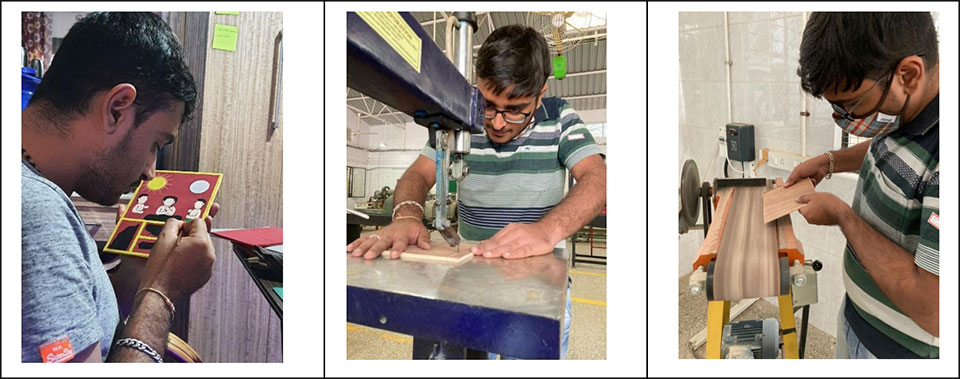
Divyarajsinh Rana reimagines the narrative structures of museum objects using the methods of traditional storytelling. In this work, a museum glass box artefact was reinterpreted as a ‘Kaavad’ as part of his practice-based research. Courtesy: Srishti Manipal Institute
Vision
Reimagining Transitions considers the large-scale macroshifts that are happening across natural ecosystems as well as human societies and the interplay between the two. It seeks a new kind of consciousness that does not glorify the past or vilify the present, a consciousness that can engage with uncertainty, paradox, dynamic change on one hand, and also shifting power structures, voices from the margins, relationships with more-than-human worlds, and new dialogues of autonomy and agency. It will enable artists and designers to work with dynamic meaning making, context-sensitive ethics and collective strategies of action towards cultures of resilience.
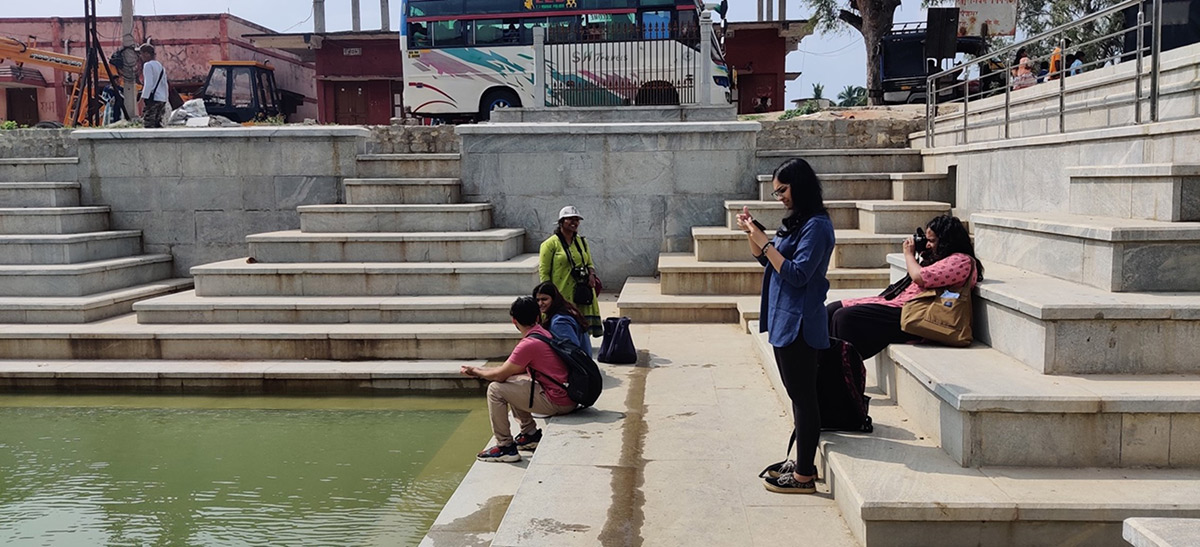
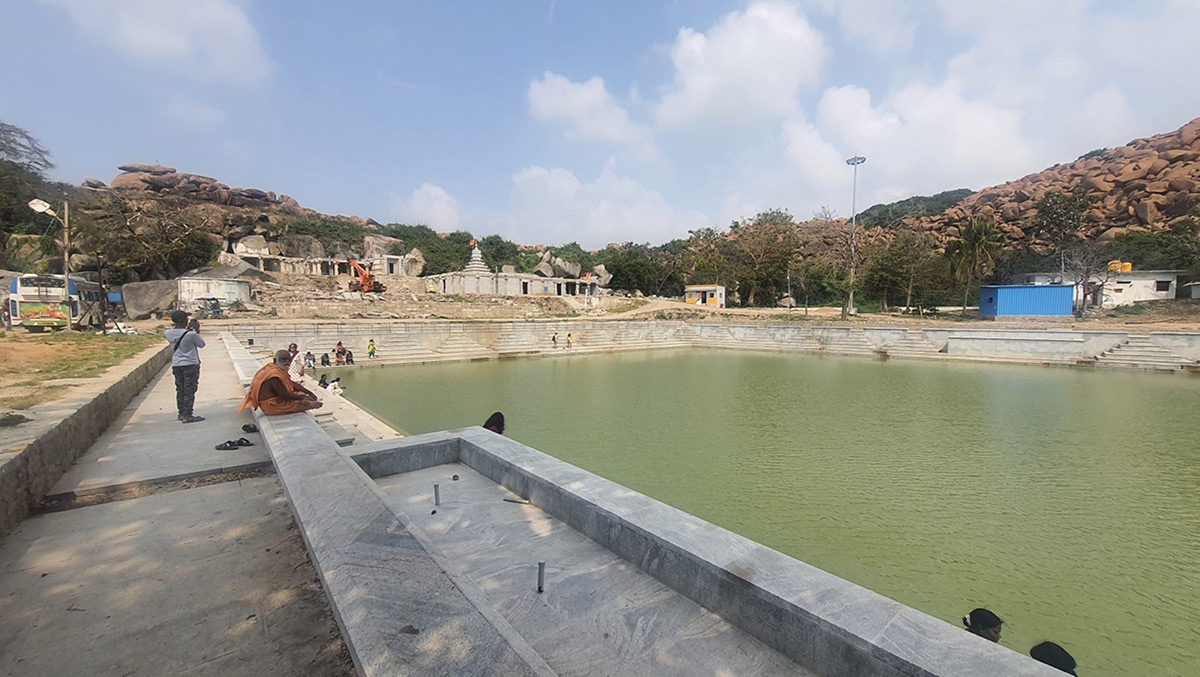
Field visit to Pampa Sarovar, Anegundi for the study of development induced transitions of the community and place.
We are at a new edge of time in the history of human civilization, as the ecological crisis pushes us to our limits. As climate change impacts diverse communities across the world, our notions of civilization are challenged and we are at a point where we must reimagine our perceptions of being human, our interdependence, coexistence and relationships with the natural world, our economies and structures of power. As technology intersects and becomes an extension of the human capabilities, it also compresses our time to adapt and build resilience. There is a need to reimagine our education systems as well as the boundaries and borders that define our identities, public policies and governance structures. Whether it is notions of nationality, or urban-rural, forest-village, in reimagining our relationships with the more-than human world, the imaginary lines that we draw need to be questioned, perhaps discarded to emerge new relationships. The immediate need is to move towards constructing a planetary society.
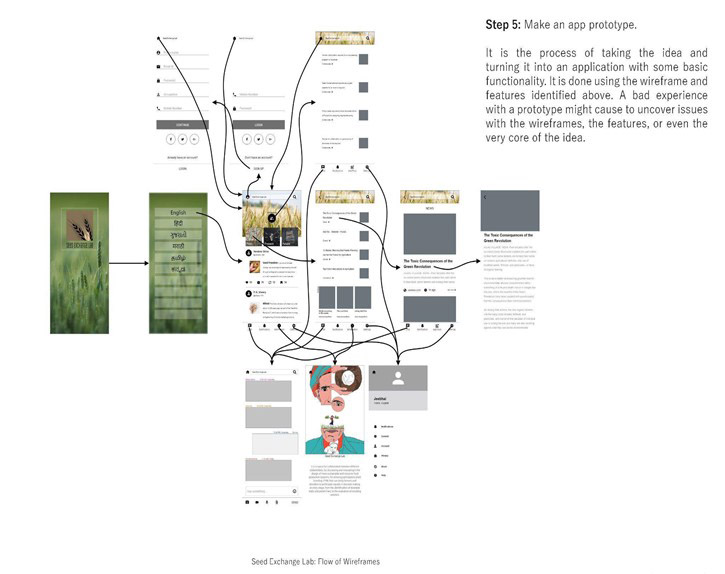
Divayarajsinh Rana develops an app that will support farmers for a seed exchange lab. Courtesy: Srishti Manipal Institute.
It is a time of macroshifts and microshifts that scatter the landscape of transitions. What does transition mean at a time of ecological, social, economic and cultural crises? How do we reimagine a world that is rediscovering itself in its tumultuous, dynamic and powerful present?
Designed to focus on consciousness as integral to transitions, this program is the first and only academic program in the world that brings to light the role of consciousness in self, community and environment as a key factor in designing transitions. Drawing upon Asian traditions of thought, the program emphasizes the critical importance of consciousness based approaches to make sense and research into the most pressing problems of our time.
Core Values
The implications of design lie not so much in their ability to communicate as in the values that inform their conception. In Reimagining Transitions, the purpose of working with transitions and macroshifts is embedded in imagination, ethics and empathy, responsibility, deep understanding and an essential rooting of oneself in the environment. Reimagining Transitions is defined and informed by the following values:
Empathetic Imagination: Listening through all the senses and being able to unravel other worldviews with reflection and respect, providing cognitive, social and ecological justice
Immersive Engagement: To build deep engagement with context and place to understand the complexities and inhabit open living systems to reimagine dominant frameworks
Ethical Action: Moving away from the paradigm of problem solving to engaged understanding of contexts and communities, both human and more-than-human and emerge actions through reflective and context-sensitive ethics
Convivial Collaboration: Move from a frame of individualism to collective, collaborative and participatory approaches of practice and action.
Reflective Co-existence: Being able to reflect and bring awareness to our presence on the planet with awareness of all life and our relationships with them while engaging with macroshifts
Key Inquiries
- Reimagine complex systems, both natural and human to critically and creatively engage with economy, livelihoods, survival and quality of life
- Imagine and re-build transition economies and transition towns in response to the ecological crisis
- Build relational understandings with the natural world, and emerging ethics in and through cultures of transition
- Re-evaluate developments in natural ecosystems (for eg. Mountain environments) for restoration of natural health of the ecosystem and for policy advocacy
- Design spaces for autonomy and agency and generate possibilities for collective strategies of action
- Critique impact of technology on dynamic change, the natural world and a world in transition
- Extend technological imagination for co-existence
- Re-engage with consciousness theories from diverse traditions to develop transition frameworks
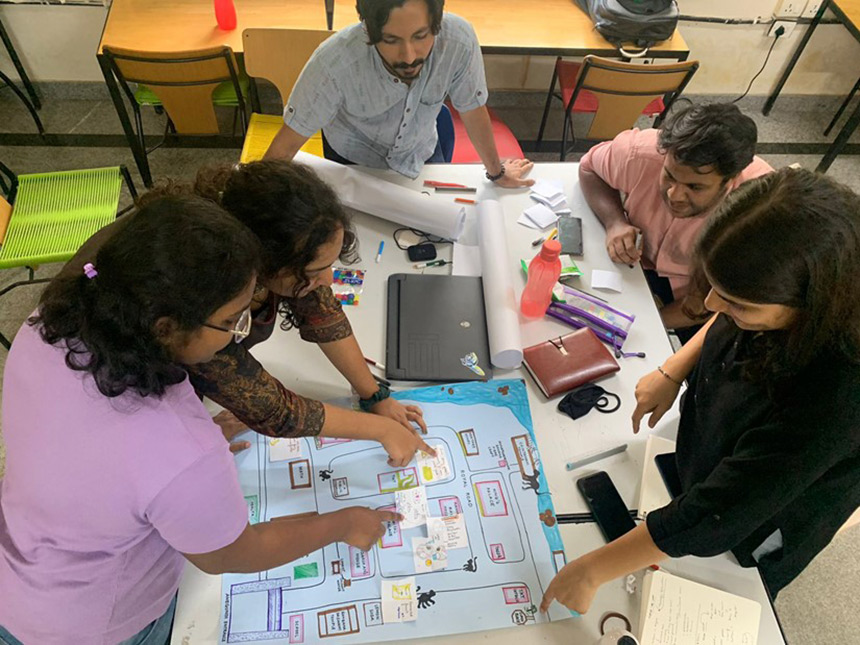
Students’ engagement in system mapping of socio-cultural-technical transitions of Anegundi, Karnataka – picture courtesy team of CRT.
Learning Approaches
Integrated Doctoral Program at Srishti Manipal offers Practice Based and Practice Led Approaches as ways to form self-renewing and effective professional practices as distinct theoretical positions in their own framings.
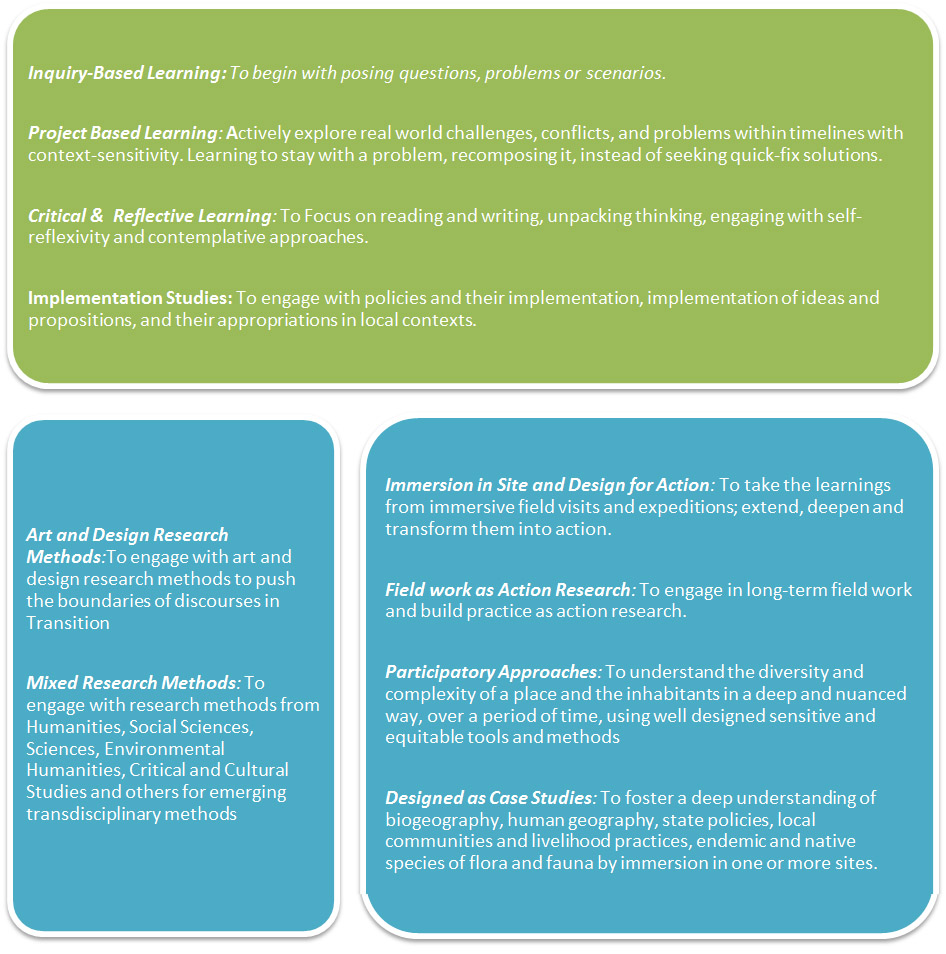
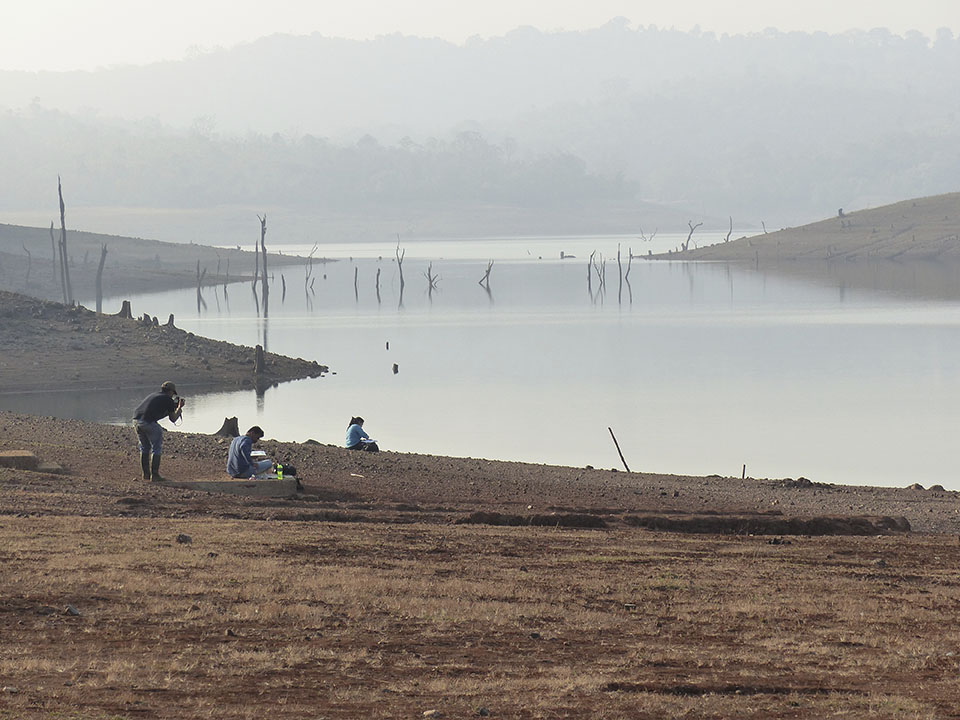
Students sketch impact of the Linganmakki dam on the local environment at the Muppane reservoir. PC: Srivi Kalyan.
Research & Collaborations
The Reimagining Transitions Integrated Doctoral Program is closely linked with a wide range research and practice spaces that offer research scholars opportunities to explore areas such as environmental conservation, climate change, tangible and intangible cultural heritage, policy impact and design.
Research Scholars and Mentors will guide our scholars through the following centres and labs
Centre for Educational Research Training and Development (CERTAD)
Centre for Public History (CPH)
Documentary Film Lab for Habitat Studies
Frugal Design DESIS Lab
Impact Edge
Līla – Artist Research Studio
Odde Research Center
Srishti Films
The UNESCO Chair in Culture, Habitat, and Sustainable Development
People
Enquiries


